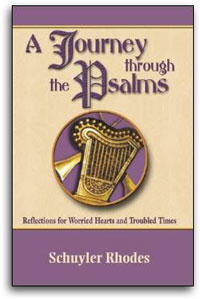SermonStudio
Psalm 19
Preaching
A Journey Through the Psalms: Reflections for Worried Hearts and Troubled Times
Preaching the Psalms Cycles A, B, C
Saint Paul gave the Christian church a great legacy, and that gift is the truth we proclaim: that grace overcomes law. Paul's writings are shot through with this concept, making this notion central to us in our tradition. It runs through sermons and texts, permeates church doctrine, and causes us to snicker and sneer at the concept of law. Even when our institutions reach pharisaical heights that would have made Jesus flinch, we mouth the verbage of grace over law.


